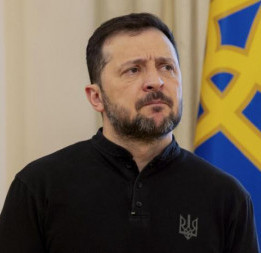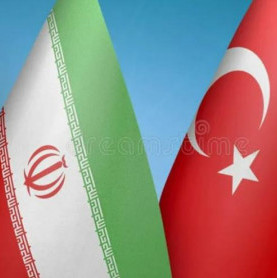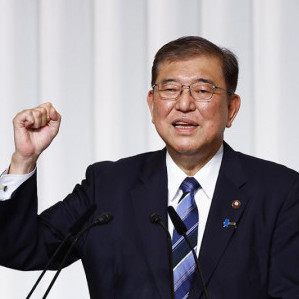The intention of US President Donald Trump to withdraw American troops from Syria so far leads to a severe collision of views and triggers turbulence even among the members of the US administration itself. That has not distilled down to headline-making resignations of US Secretary of Defense James Mattis and the US special presidential envoy for the coalition to defeat ISIS Brett McGurk, who had long headed the US mission in Syria and Iraq with 78 countries participating. Those who also found themselves in a sticky situation were White House National Security Adviser John Bolton as tough talks in Turkey fell to his lot, and Secretary of State Mike Pompeo who paid urgent visits to Israel and Arab states. It was necessary to have it out somehow with allies and, above all, answer the question, what comes next?
The ‘godfather’ of the US security business and founder of a private military firm Blackwater Erik Prince has recently shared his viewpoint regarding the issue. In an interview with FOX Business TV channel released in January, he suggested that the US troops’ withdrawal from Syria be back-stopped by American mercenary squads. “Otherwise our partners will be smashed there as a result of the Syrian army’s ground operation.” “Our partners” means People’s Protection Units of the Syrian Kurds. They have been fighting on the side of the US-led anti-ISIS alliance since 2014, and, as one of leading supporters of Kurdish independence Ms Ilham Ahmed wrote in her article for The Washington Post, are “America’s best friends in Syria.” So what, hang them out to dry?
Indeed, once the US troops are out, the Syrian Kurds will inevitably find themselves between two fires. In the south is Assad’s army for cementing control in the area to the east of the Euphrates straight after the American withdrawal: Damascus admits neither full nor partial Kurdish autonomy. In the north, at the outer side of the border, is hostile Turkey that views the Kurds as terrorists and interprets the very fact of their existence as a challenge to its national security. Turkey has already claimed that it might launch a military operation against the Kurds after the US troops’ pullout.
Turkey’s invasion into the Syrian territory and formation of a Turkish-controlled security area on the territory of a neighboring country will virtually put an end to the project named Syrian Kurdistan. Being aware of that, the Kurds appeal for support and pay visits as well. At Elysee Palace, they tried to garner the support of France. In the UN Security Council, they insisted on creating a no-fly zone in the Syrian north. They also pleaded for protection guarantees in Washington. At the end of January, Ms Ahmed met US President. According to Bloomberg TV, Trump assured the Kurdish politician: “Don't worry, I love the Kurds.”
US President’s love does not seem quite the thing Ms Ahmed had expected, which is why the Kurds brokered by Russia do not keep away from Damascus either. As a basis for potential dialogue with the Syrian government, the leader of Kurdish People's Protection Units Sipan Hamo set forth a list of main requirements in Damascus and Moscow. The Syrian foreign ministry has only accepted the key item so far – on the Kurds’ obligation to preserve Syria’s integrity, vaguely adding that the remaining issues would be discussed.
For its loyalty to the Syrian state, the Kurds would like to: autonomously manage their “own” territory, pursue their own foreign policy, have their own security forces, develop their own education system and, of course, be represented in the Syrian parliament. All Syrian riches – oil and gas fields, water reserves, harvests of wheat that is grown in the areas to the east of the Euphrates, should be “fairly shared with the whole country.” In such a case, the Kurdish resistance fighters could merge into a new Syrian army.
Another important note has been made by Ms Ahmed. She said that the US’ representatives had never interfered with Damascus talks, “though they had always insisted on the talks held only from a position of strength.” That brings up a key question: how strong is the position of Syria’s Kurds today, considering new realities?
No doubt, the Kurds still have thousands of fighters, a large number of women dedicatedly participate in military operations, thousands of Kurdish suiciders have given lives for the future of their nation. The Kurds have many heavy weapons, substantial munitions stockpiles, and a striking fleet of motor vehicles at their disposal. They have been trained by the US army’s instructors. Experts from the US Agency for International Development have helped establish alternative state structures. The US have shared with the Kurds contacts in countries of their anti-ISIS coalition, and now the Kurds are welcome in Paris, London and Berlin. The Kurds have received funds for creating their media outlets spreading information in different languages across the world. The Kurdistan Workers’ Party, a political organization, is actively working. Its veteran leader Abdullah Ocalan, who has been serving life sentence in Turkish prison for 20 years already, laid the foundation for ideology that allows attracting young people from other countries. The Syrian Kurdistan project has become a lucrative example for left-wing forces in Europe.
And yet, it cannot go unnoticed that the Syrian Kurds’ climb to success is outright due to the American patronage. Does that fact obscure a clear view of the new reality? Do the Kurds size up their possibilities amid the changed balance of strength in the region?
Related doubts appeared a year ago after the fall of Afrin, the capital of the Kurdish enclave in the Syrian north, taken under control by the Turkish army and Turkish-controlled Syrian anti-governmental groups. Then, in March 2018, the Kurds failed to put up serious resistance. Turkey’s intervention certainly breached the norms of international law, though the tragedy could have been avoided if the Kurds effectively took stock of the situation and accepted the protection proposal of the Syrian army.
After the withdrawal of the American troops from Syria, the whole area to the east of the Euphrates may turn into an entire armed hostilities field. The tragedy can only be prevented by the Syrian army and its allies, which Turkey does not oppose, by the way. All proposals coming from Europe and the US – be it banned flights in that area, deployment of a mercenary army, taking prisoners from the ISIS group, assistance in rehabilitation of infrastructure – in reality are aimed not at protecting northern Syria and least of all at implementation of the Syrian Kurdistan project. The goal of Europe and US is to split Syria and bring its allies – Russia and Iran – under their umbrella. For doing that, Germany, France and Britain want to keep the Kurds away from Damascus. That is an assignment received from Washington and approved by Tel-Aviv.
Europe is determined to prevent Syria’s return to the League of Arab States, it disturbs the intra-Syrian reconciliation process, blocks assistance efforts on refugees’ return. That is particularly evident from new economic and financial sanctions not only against Syrian companies themselves, but also against those who are ready to cooperate with Syria to reconstruct the country destroyed by the war.
To sum up, the Syrian Kurds have taken up with unreliable partners. If they are eager to ensure Syria’s integrity and approach implementation of their ideas, they should learn to face up to reality.









